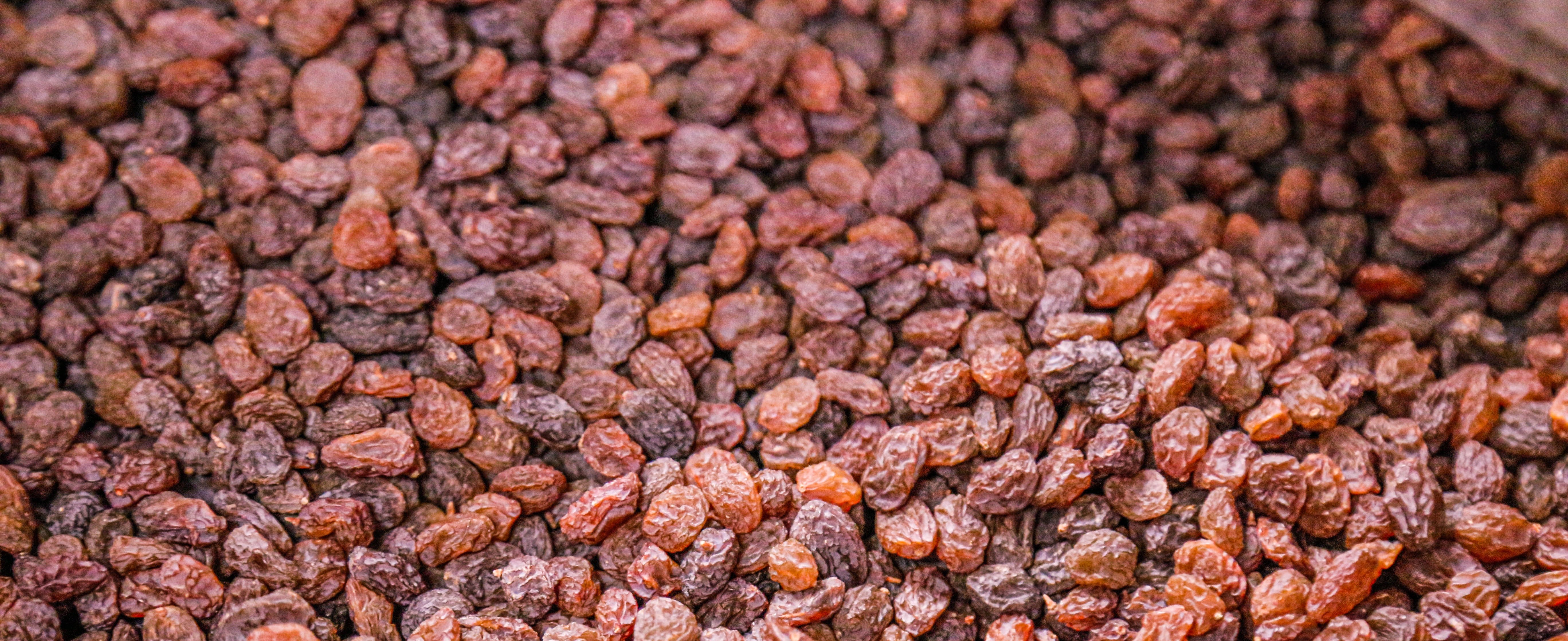raisins in the Bible
Hebrew: צַמּוּק —transliteration: tsimmuq —meaning: bunch of raisins
Raisins are dried grapes and were a valued food item in Biblical times mentioned several times in Scripture. The word raisin is generally reserved for the dark-colored dried large grape.
…distributed to all the people, to all the multitude of Israel, both to men and women, a cake of bread, one of dates, and one of raisins to each one. Then all the people left, each to his house. —2 Samuel 6:19 NASB
Note: Dried raisins were often pressed together to form portions (a cake) for transportation or storage.
Then Abigail hurried and took two hundred loaves of bread and two jugs of wine, and five sheep already prepared and five measures of roasted grain, and a hundred cakes of raisins and two hundred cakes of figs, and she loaded them on donkeys. —1 Samuel 25:18 NASB
King David’s servants gave raisin cakes to an Egyptian.
They also gave him a slice of fig cake and two cakes of raisins, and he ate; then his spirit revived. For he had not eaten bread or drunk water for three days and three nights. —1 Samuel 30:12 NASB
Ziba gave to David and his people
Now when David had gone on a little beyond the summit, behold, Ziba the servant of Mephibosheth met him with a team of saddled donkeys, and on them were two hundred loaves of bread, a hundred cakes of raisins, a hundred summer fruits, and a jug of wine. —2 Samuel 16:1 NASB
There was joy indeed in Israel
Moreover, those who were near to them, as far as Issachar, Zebulun, and Naphtali, brought food on donkeys, camels, mules, and on oxen, great quantities of flour cakes, fig cakes and bunches of raisins, wine, oil, oxen, and sheep. There was joy indeed in Israel. —1 Chronicles 12:40 NASB
Idolatrous pleasure seekers
…they turn to other gods and love raisin cakes. —Hosea 3:1 NASB excerpt
Dr. John MacArthur reminds readers of the propecies of Hosea that raisin cakes were “eaten as a part of special occasions” (see 2 Sam. 6:19), and “they may have been used in idolatrous ceremonies, possibly as an aphrodisiac” (see Song of Songs 2:5), possibly a type of “love cake.”
More information
- About grapes in the Bible
- About vines in the Bible
- About fruit in the Bible
- Foods of the Bible
- Idolatry
